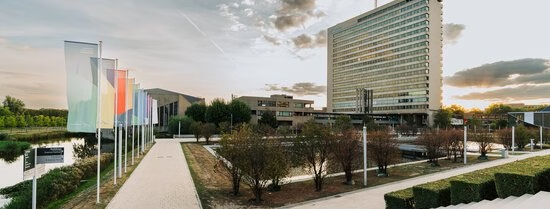Philosopher of science Alison Wylie was awarded an honorary doctorate for her outstanding contributions to the philosophy of science during the 111th Dies Natalis on 8 November 2024. Wylie was also recognized for her contributions to feminist philosophy, her engaged scholarship, and her work promoting diversity and inclusion within the discipline of philosophy.

A highly influential philosopher of science
Throughout her career, Alison Wylie has been a highly influential philosopher of science, with a particular focus on the philosophy of archaeology and social science. Beyond her significant contributions to these fields, she has advanced feminist philosophy, research ethics, and championed efforts to make philosophy more inclusive. Wylie has developed models of evidential reasoning that emphasize strategies of triangulation and the role of background knowledge in an iterative process of stabilizing empirical claims about facts of the record and facts of the past. She first established this view in her now-classic book Thinking From Things (2002, University of California Press) and developed it in numerous co-edited volumes in leading presses and journals on the topic.
Standpoint theory
Alison Wylie has also been a key figure in feminist standpoint theory, investigating the extent to which situated knowledge can play an epistemically productive role in scientific inquiry rather than create bias. Indeed, she has been instrumental in recasting feminist ‘standpoint theory’ in epistemic terms. She has also done groundbreaking work addressing gender inequity in philosophy.
Honorary doctorate
For all these contributions, Alison Wylie was awarded an honorary doctorate from Erasmus University Rotterdam. In his laudatio, honorary promotor Conrad Heilmann characterized Alison Wylie as an "outstanding philosopher of science" who has “redefined what philosophers of science can do and should do.” According to Heilmann, Wylie does not only think hard about science but also applies the resulting insights of her research. He praised her for the advancement of the “project of knowing well, in academia and beyond.”
Unique and socially engaged scholarship
In the lecture on engaged research, Wylie discussed cooperation with archaeologists and Indigenous communities in Canada, as a Co-Principal Investigator of the research cluster Indigenous/Science: Partnerships in the Exploration of History & Environments, based in the University of British Columbia. In her research, she addresses questions such as: What does it mean to do research that is engaged in this way? And how can such research be made accountable to the diverse communities it affects?
Watch the honorary doctorate ceremony and lecture
Wylie delivered an inspiring lecture at the Dies Natalis at Erasmus University, which you can watch through the link at the top of the page. She was also featured as the keynote speaker at both the discussion event “What is engaged research?” and at a faculty colloquium at ESPhil.
- CV
Alison Wylie is a philosopher of science based at the University of British Columbia, where she holds a Canada Research Chair. She has been elected to the national academies of several countries and has served as president of the Philosophy of Science Association and the American Philosophical Association. She is a co-PI of the UBC-based research cluster "Indigenous/Science: Partnerships in the Exploration of History & Environments," and serves on the leadership circle for the US National Science Foundation Center for Braiding Indigenous Knowledges and Science.
- More information
Explore Wylie’s work: https://www.eur.nl/en/library/news/honorary-doctorates-2024-get-know-their-work
- Related content
